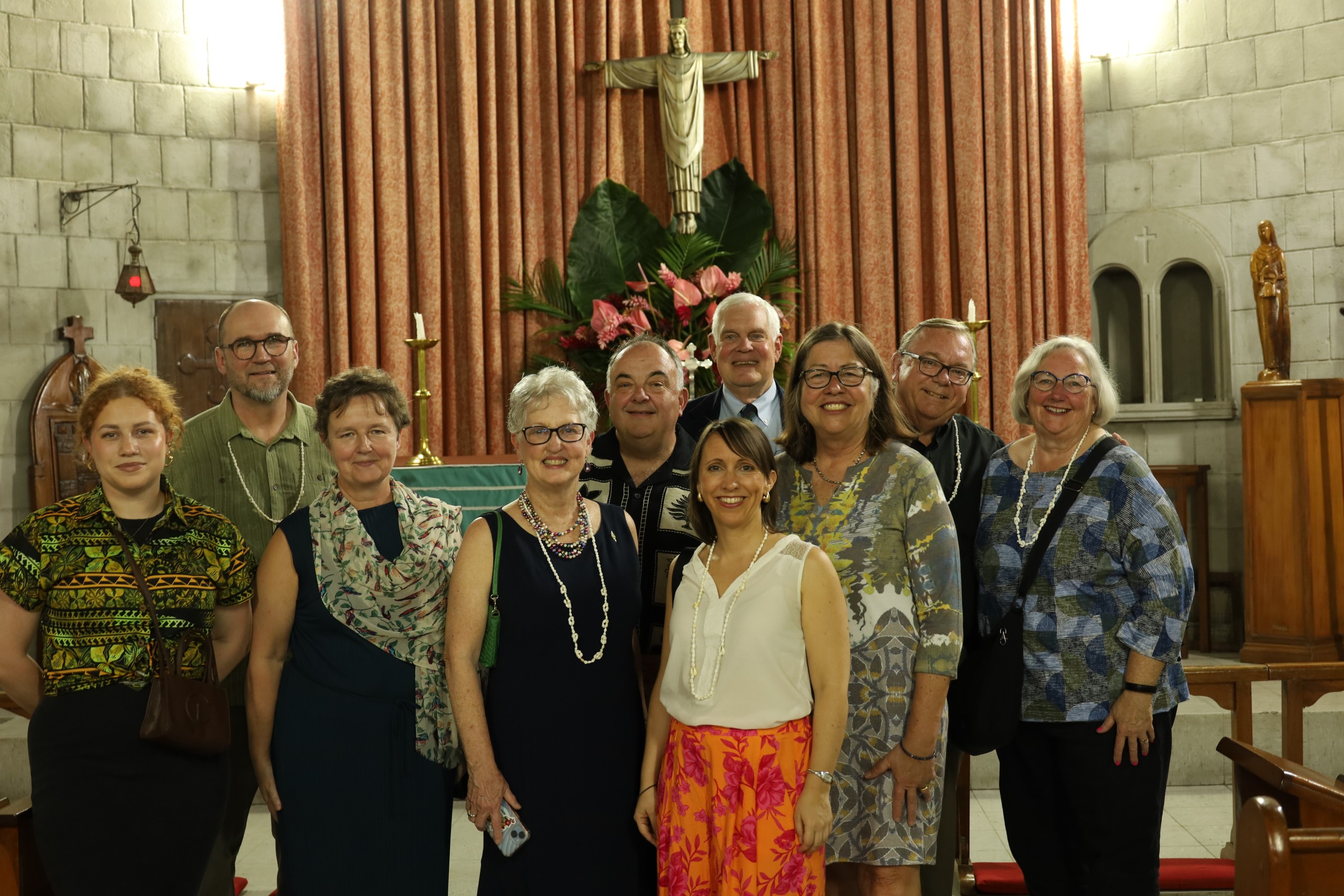The global Anglican Communion is a sprawling, interconnected network of diverse communities united by faith, yet distinct in their cultural expressions. A group of pilgrims from the Compass Rose Society and Anglican Communion Office recently embarked on a journey across Oceania from February 19th to March 2nd, 2025. Hosted by Archbishop Don Tamihere and Te Pīhopatanga o Aotearoa, their mission was to strengthen ties with Māori and Pasefika communities, while exploring the intersection of indigenous Anglicanism, Moana theology, climate resilience, whakapono, surviving colonisation, and the three Tikanga structure within the province.
Among the 15 pilgrims were notable figures such as Bishop Anthony Poggo, Secretary General of the Anglican Communion; Bishop Todd Townshend of the Diocese of Huron, Canada; Canon Sammy Wainaina from Lambeth Palace; and Canon Doug Horner, representing Bishop Daniel Gutiérrez, President of the Compass Rose Society.
The journey across Hawkes Bay, Suva and New Plymouth was a unique chance to connect with communities and build solidarity beyond borders. Since 1994, The Compass Rose Society has funded the work of the Anglican Communion Office and other communion projects.
Hawkes Bay, Aotearoa | February 19-23
The pilgrimage began on the East Coast of New Zealand, in the episcopal unit of Te Hui Amorangi ki Te Tairāwhiti, the bishopric and home of Archbishop Don Tamihere. Here, the pilgrims were immersed in the rich traditions of Māori Anglicanism, where faith and culture are inextricably intertwined.
Rev. Merekaraka Te Whitu led daily karakia in te reo Māori and English at Waiapu Cathedral in Napier, consecrated in 1967 by Archbishop Norman Lesser. The then separate Lady Chapel honoured Bishop Frederick Bennett, the first Māori bishop, and Sir Apirana Ngata.
Archbishop Don welcomed guests and spoke about the Te Pouhere constitution and the three Tikanga structure: Tikanga Māori, Tikanga Pākehā, and Tikanga Pasefika, which follows a Te Tiriti o Waitangi framework based on principles of partnership and bicultural development.
He also reflected on the deep whakapono history of Te Tairāwhiti, shaped by Māori Anglican leaders like Sir Paul Reeves, a former Bishop of Waiapu, Governor-General and UN Anglican Observer, dedicated to preserving Māori culture, as evident in the cathedral’s Māori artwork, while embracing Anglican teachings.
In the cathedral, the pilgrims were introduced to the tukutuku panels, intricate Māori woven designs inspired by the Porourangi Poutama pattern, symbolising the pursuit of knowledge and the ascent to heaven.
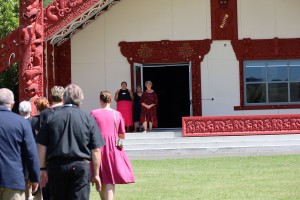
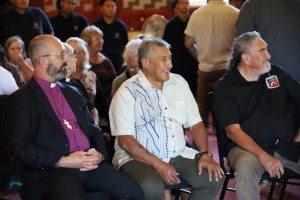
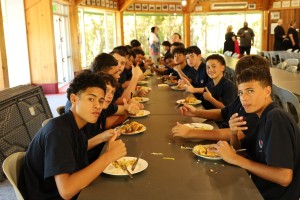
The group’s visit to Te Aute College, a prestigious Māori Anglican boarding school, was a pivotal moment. Principal Rachel Kingi welcomed the visitors with a pōwhiri inside the wharenui Te Whare o Te Rangi. The pilgrims, many of whom were experiencing Māori customs for the first time, were captivated by the waiata and haka performed by the students.
Rev. Zhane Tiopira Tāhau, the Chaplain for the college, took the pilgrims through the school’s history, and taught them Tūtira Mai Ngā Iwi, a song composed by Anglican priest and military chaplain Rev. Canon Wiremu Te Tau Huata, which became an anthem of unity for Māori.
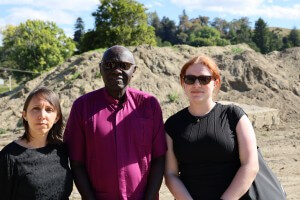
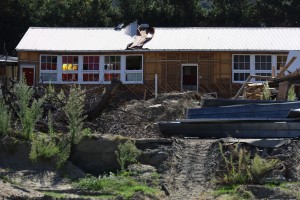
The pilgrimage included a visit to the former site of Hukarere Girls’ College in the Esk Valley, which was devastated by the floods caused by Cyclone Gabrielle in February 2023. The students were evacuated just hours before a flood rushed the valley and school. One of the members of the Compass Rose Society had personally arranged a donation to the school’s early recovery efforts.
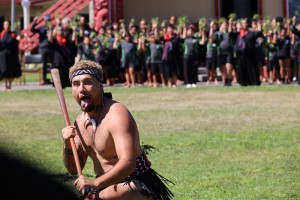

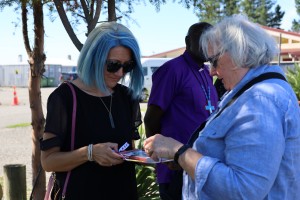
At Omāhu Marae, Bishop Anthony led the pōwhiri, accepting the peace offering set down by the toa before walking on to the marae grounds. The group heard first-hand accounts of the community’s Cyclone Gabrielle recovery efforts. Cut off by flooding, the marae swiftly mobilised resources, delivering food, clothing, and household essentials within days to assist more than 400 whānau. Here, the principles of whakapono were put into action, as the marae became a hub for welfare services, housing displaced survivors and holding daily karakia for the community.
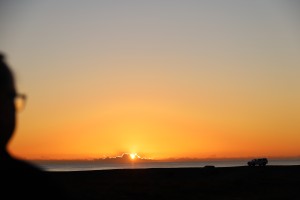
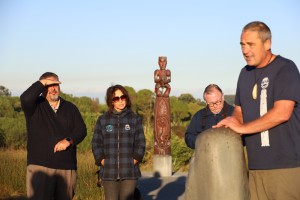

They welcomed the day with karakia at Ātea a Rangi, a star compass in Waitangi Regional Park, as the sun began to rise. Moments later, Piripi Smith, a traditional waka voyager, explained how Māori use traditional celestial navigation to traverse vast distances across the Pacific. Today, Piripi uses Ātea a Rangi to train a new cadre of navigators.
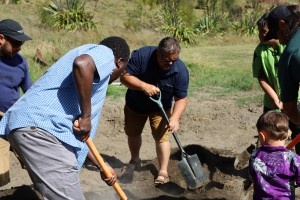
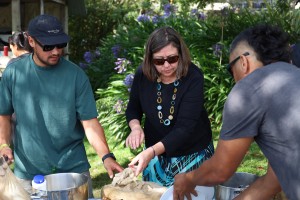
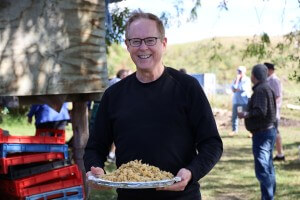
The pilgrims learned to prepare a hāngī under the guidance and home of Ngahiwi and Mere Tomoana, before visiting Deacon Charles, who introduced them to the locals of Pakipaki village.
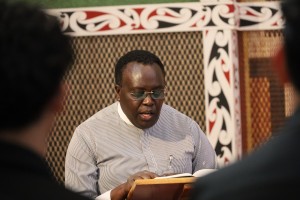
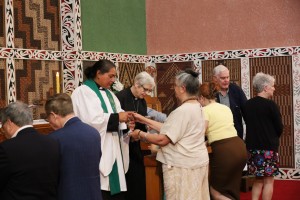
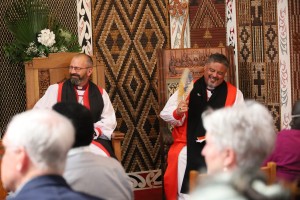
The final day in Napier ended with a special Eucharist service at Waiapu Cathedral, celebrating female leadership and the unity of two tikanga streams. Rev. Merekaraka Te Whitu and Rev. Ruihana Paenga led the service, Bishop Andrew Hedge from Tikanga Pākehā (Diocese of Waiapu) presided, and Archbishop Don Tamihere from Tikanga Māori delivered the kauhau. In his kauhau, Archbishop Don reflected on how the marae is a place where aroha can be seen and lived out for Te Oranga Ake.

Bishop Todd Townshend, Diocese of Huron, Canada
“Having my own home in mind, surrounded by the weavings that are part of this long Māori history, but then, to be in a Eucharist with two bishops, seated in two bishop’s chairs, speaks volumes. The norm is one bishop per area, you know your boundaries. Yet, two cathedras in a cathedral say so much without a word. Two bishops, friends since theology school, their comfort evident. Two chairs quiet the tension. It’s a different and better way of sharing space, opportunities, truly working together in these cultural streams. Not just for show but lived reality. It has its challenges, but it’s far ahead of where we were.” — Bishop Todd Townshend
Suva, Fiji | February 24-26
The pilgrims travelled to Fiji to discover climate change initiatives and the unique expression of Anglicanism in Polynesia, guided by Archbishop Sione Ulu’ilakepa and his team.
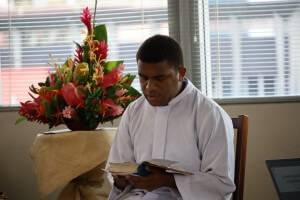
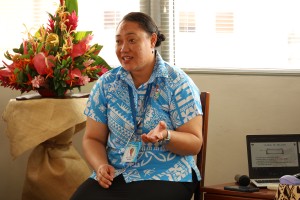

The pilgrims gathered at the Moana Anglican Services & Teaching Centre (MAST), where a karakia was led by Jordon Tarere, a student from St John the Baptist Theological School in Suva.
In his welcome speech, Archbishop Sione highlighted the importance of dialogue in the Pacific, symbolised by the traditional mats laid down for the Talanoa sessions. This sacred space, where Tala (to proclaim) and Noa (to listen) come together to create an equal space for reflection and action.
He noted how cyclone season used to end in March but now lasts year-round due to climate change. “There are three cyclones circling Fiji right now. This is not a time for lament, but for hope, to live into the challenges that God calls us to and to strengthen our faith in action. My message to this diocese is simple: embrace.”
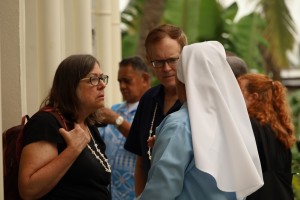
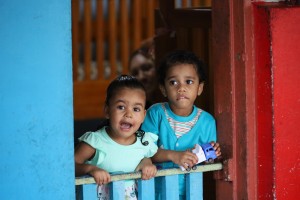
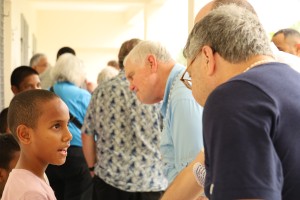
The group visited the renowned St Christopher’s Home for Children, established in 1968. Sister-in-charge, Sister Kalolaine, led a tour of the new boys’ accommodation, while the girls shared their career aspirations and sang for the visitors.
Fe’iloakitau (Fei) Tevi, climate advocate and interim Climate Commissioner for the province, stressed the urgency of tackling climate change. He helped draft the Pacific Islands Development Summit paper, advocating for a global target to keep warming below 1.5°C. At COP21 in 2015, Pacific leaders warned that exceeding this limit would endanger lives.
1.5°C is based on the environment’s ability to keep pollution below 300 parts per million (ppm). He warned that climate change could destroy up to 80% of coral reefs, threatening vital services for 11 million Pacific people, a region rich in marine life and contributing 57% of global GDP.
Archbishop Sione said, “Our voice alone is not strong enough,” urging the pilgrims to amplify the Pacific’s message. “This is a matter of life and death for us.”
Ms Siva Sunia shared the story of their youth-led resilience programme, Community Integrated Resilience Assessment (CIRA), that maps families’ needs in case of emergency across the four Tongatapu Anglican parishes.
The pilgrims had the chance to sail on the va’a Uto Ni Yalu, accompanied by some of the youngest certified traditional navigators in the world. Some of them have spent 6-8 months on blue water voyages, navigating to destinations such as Hawaii, the Americas, Chile, Easter Island, Rarotonga, and New Zealand. They observed how climate change has altered the coastline in Suva Harbour.
“We only just moved to Canada a few years ago, so we became more familiar with First Nations than we were in the UK. We saw this as an opportunity to learn more and understand what can be done. It’s the generous hospitality that drew us in. At morning prayer yesterday, it was beautifully led by Jordan, a St John’s student.” Jacqui Hance, Secretary of Compass Rose Canada.
New Plymouth | February 27 – March 2
The final stop brought the pilgrims to New Plymouth, where they attended the biennial Te Matatini Kapa Haka festival, one of the largest gatherings of Māori people and culture. Here, they were guests of Sir Selwyn Parata, Chair of Te Pīhopatanga o Aotearoa and Te Matatini Festival. The pilgrims immersed themselves in the atmosphere, learning about the songs’ compositions and the contemporary issues they address, while exploring a marketplace brimming with Māori artists and entrepreneurs.
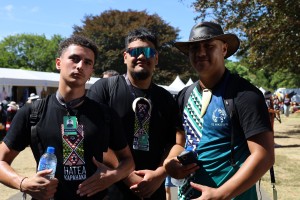
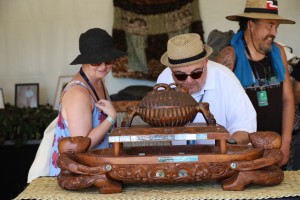
On their final day, the pilgrims attended a Eucharist at Mere Tapu (St. Mary’s), where they learned how the church, once a symbol of colonial oppression for Māori in the 1800s, has since become a place of peace making.
They visited Te Manu Hononga, an onsite educational centre dedicated to Sir Paul Reeves, who has whakapapa to the mana whenua, which offers programmes and events supporting the ongoing process of reconciliation for local hapū Ngāti Te Whiti, Puketapu, Mere Tapu, and the people of New Plymouth.
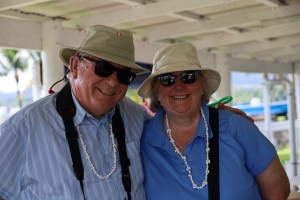
Heather Jones and the Venerable Richard Jones
“What has stood out for me throughout has been the music. Music has always been an important part of my life. We experienced music everywhere we went – at Te Aute College, morning karakia, cathedral services, the marae visit, karaoke at the hangi, and even after thanking the Te Matatini staff. Communal singing connects the community – body, soul and spirit.” – Heather Jones, Compass Rose Society Member, Ontario, Canada.
The pilgrimage fostered global Anglican connections, showcasing indigenous resilience, faith, and climate action. Pilgrims returned with a renewed commitment to partnership and a vision for a potential indigenous chapter of the Compass Rose Society, amplifying Māori and Pasefika voices within the Anglican Communion.
Following a successful pilgrimage, Archbishop Don and Bishop Daniel Gutiérrez have confirmed the establishment of an Indigenous Chapter within the Compass Rose Society, which has been a long time in the making. This is a meaningful step forward and opens new pathways for growth and connection across our Hāhi.
